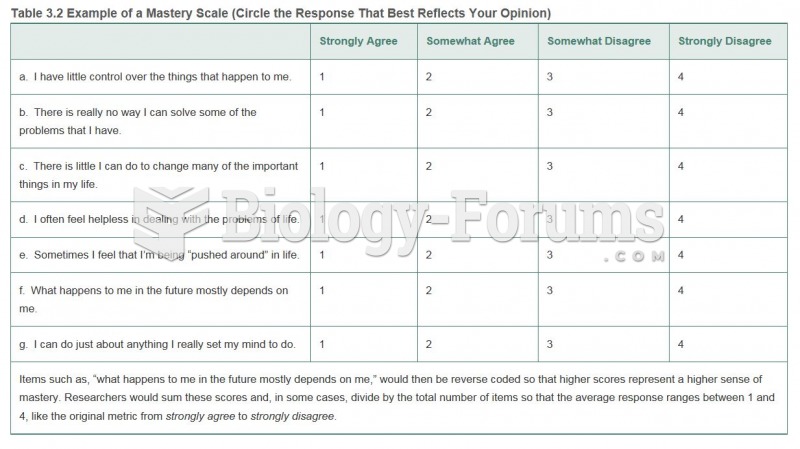This topic contains a solution. Click here to go to the answer
|
|
|
Did you know?
The B-complex vitamins and vitamin C are not stored in the body and must be replaced each day.
Did you know?
Medication errors are three times higher among children and infants than with adults.
Did you know?
HIV testing reach is still limited. An estimated 40% of people with HIV (more than 14 million) remain undiagnosed and do not know their infection status.
Did you know?
All adults should have their cholesterol levels checked once every 5 years. During 2009–2010, 69.4% of Americans age 20 and older reported having their cholesterol checked within the last five years.
Did you know?
Oxytocin is recommended only for pregnancies that have a medical reason for inducing labor (such as eclampsia) and is not recommended for elective procedures or for making the birthing process more convenient.
 The experimental approach used by Masui and Markert to identify cyclin and cyclin-dependent kinase (
The experimental approach used by Masui and Markert to identify cyclin and cyclin-dependent kinase (
 (A) The nine regions of the abdominopelvic cavity. (B) The four regions of the abdomen, which are re
(A) The nine regions of the abdominopelvic cavity. (B) The four regions of the abdomen, which are re





